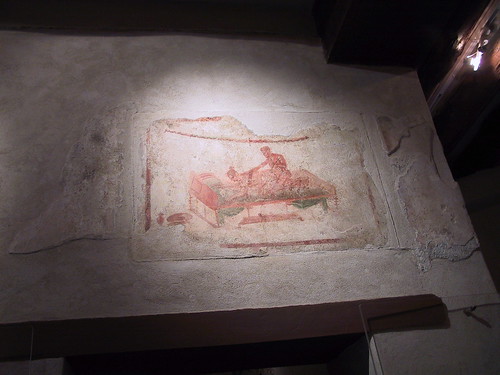
For some reason, there were lots of fish being dried in and around this temple.
A Blog from a Zen Buddhist with a technical background






WiMAX and metro Wi-Fi are both more energy cost effective than cellular, according to a report by ABI Research (London, U.K.). The observation comes into stark relief against the backdrop of rapidly-increasing energy consumption as carriers move to high-data-rate mobile broadband access.
For those broadband networks, energy costs represent the third most significant operating expense (OPEX) for cellular carriers, and fluctuating energy costs are a significant area of concern for business planners, said the report entitled, "Energy Efficiency Analysis for Mobile Broadband Solutions." The move to higher data rates means that the energy required per subscriber arising from increasing data uptake will push per-subscriber energy OPEX for cellular solutions past acceptable barriers—unless carriers move from a traditional cellular-only approach to one that integrates WiMAX and metro Wi-Fi.
Stuart Carlaw, director of wireless research at ABI Research, says that "From a pure coverage perspective WiMAX is twice as energy-cost-effective and metro Wi-Fi is 50 times more energy-cost-effective than WCDMA. When data traffic is factored into the equation, WiMAX can accommodate 11 times today's average data consumption and still be more energy-cost-efficient compared to WCDMA or HSDPA.
A recent ABI Research study found that the total energy consumption arising from mobile broadband service delivery is forecast to grow from 42.8 billion kilowatt hours (KWh) in 2005 to 124.4 billion KWh in 2011. The Asia Pacific region will account for the majority of this growth.
Of course you're right, but the next step one must take is to conclude that bellowing crap like "decisive ideological struggle of our time" is exactly that - crap.
It's not the "decisive ideological struggle of our time."
The "decisive ideological struggle of our time" is basically how should 6+ billion people survive on this planet.
Solve that problem and all the religious ideological bullshit - and corrupt crony capitalist problems go away.
That, and that alone is the "decisive ideological struggle of our time."
For millennia the question of free will was the province of philosophers and theologians, but it actually turns on how the brain works. Only in the past decade and a half, however, has it been possible to watch the living human brain in action in a way that begins to show in detail what happens while it is happening (see survey). This ability is doing more than merely adding to science's knowledge of the brain's mechanism. It is also emphasising to a wider public that the brain really is just a mechanism, rather than a magician's box that is somehow outside the normal laws of cause and effect.
Science is not yet threatening free will's existence: for the moment there seems little prospect of anybody being able to answer definitively the question of whether it really exists or not. But science will shrink the space in which free will can operate by slowly exposing the mechanism of decision making.
At that point, the old French proverb “to understand all is to forgive all” will start to have a new resonance, though forgiveness may not always be the consequence. Indeed, that may already be happening. At the moment, the criminal law—in the West, at least—is based on the idea that the criminal exercised a choice: no choice, no criminal. The British government, though, is seeking to change the law in order to lock up people with personality disorders that are thought to make them likely to commit crimes, before any crime is committed.
Such disorders are serious pathologies. But the National DNA Database being built up by the British government (which includes material from many innocent people), would already allow the identification of those with milder predispositions to anger and violence. How soon before those people are subject to special surveillance? And if the state chose to carry out such surveillance, recognising that the people in question may pose particular risks merely because of their biology, it could hardly then argue that they were wholly responsible for any crime that they did go on to commit.
Nor is it only the criminal law where free will matters. Markets also depend on the idea that personal choice is free choice. Mostly, that is not a problem. Even if choice is guided by unconscious instinct, that instinct will usually have been honed by natural selection to do the right thing. But not always. Fatty, sugary foods subvert evolved instincts, as do addictive drugs such as nicotine, alcohol and cocaine. Pornography does as well. Liberals say that individuals should be free to consume these, or not. Erode free will, and you erode that argument.
And one from today's NY Times:
In the 1970s, Benjamin Libet, a physiologist at the University of California, San Francisco, wired up the brains of volunteers to an electroencephalogram and told the volunteers to make random motions, like pressing a button or flicking a finger, while he noted the time on a clock.Dr. Libet found that brain signals associated with these actions occurred half a second before the subject was conscious of deciding to make them.
The order of brain activities seemed to be perception of motion, and then decision, rather than the other way around.
In short, the conscious brain was only playing catch-up to what the unconscious brain was already doing. The decision to act was an illusion, the monkey making up a story about what the tiger had already done...
“Is it an illusion? That’s the question,” said Michael Silberstein, a science philosopher at Elizabethtown College in Maryland. Another question, he added, is whether talking about this in public will fan the culture wars.
“If people freak at evolution, etc.,” he wrote in an e-mail message, “how much more will they freak if scientists and philosophers tell them they are nothing more than sophisticated meat machines, and is that conclusion now clearly warranted or is it premature?”...
Other philosophers disagree on the degree and nature of such “freedom.” Their arguments partly turn on the extent to which collections of things, whether electrons or people, can transcend their origins and produce novel phenomena.These so-called emergent phenomena, like brains and stock markets, or the idea of democracy, grow naturally in accordance with the laws of physics, so the story goes. But once they are here, they play by new rules, and can even act on their constituents, as when an artist envisions a teapot and then sculpts it — a concept sometimes known as “downward causation.” A knowledge of quarks is no help in predicting hurricanes — it’s physics all the way down. But does the same apply to the stock market or to the brain? Are the rules elusive just because we can’t solve the equations or because something fundamentally new happens when we increase numbers and levels of complexity?
Opinions vary about whether it will ultimately prove to be physics all the way down, total independence from physics, or some shade in between, and thus how free we are. Dr. Silberstein, the Elizabethtown College professor, said, “There’s nothing in fundamental physics by itself that tells us we can’t have such emergent properties when we get to different levels of complexities.If by free will we mean the ability to choose, even a simple laptop computer has some kind of free will, said Seth Lloyd, an expert on quantum computing and professor of mechanical engineering at the Massachusetts Institute of Technology.
Every time you click on an icon, he explained, the computer’s operating system decides how to allocate memory space, based on some deterministic instructions. But, Dr. Lloyd said, “If I ask how long will it take to boot up five minutes from now, the operating system will say ‘I don’t know, wait and see, and I’ll make decisions and let you know.’ ”
Why can’t computers say what they’re going to do? In 1930, the Austrian philosopher Kurt Gödel proved that in any formal system of logic, which includes mathematics and a kind of idealized computer called a Turing machine, there are statements that cannot be proven either true or false. Among them are self-referential statements like the famous paradox stated by the Cretan philosopher Epimenides, who said that all Cretans are liars: if he is telling the truth, then, as a Cretan, he is lying.
One implication is that no system can contain a complete representation of itself, or as Janna Levin, a cosmologist at Barnard College of Columbia University and author of the 2006 novel about Gödel, “A Madman Dreams of Turing Machines,” said: “Gödel says you can’t program intelligence as complex as yourself. But you can let it evolve. A complex machine would still suffer from the illusion of free will.”
Another implication is there is no algorithm, or recipe for computation, to determine when or if any given computer program will finish some calculation. The only way to find out is to set it computing and see what happens. Any way to find out would be tantamount to doing the calculation itself.
“There are no shortcuts in computation,” Dr. Lloyd said.
Oddly enough, I agree with Lloyd. And not just because I've met him before...